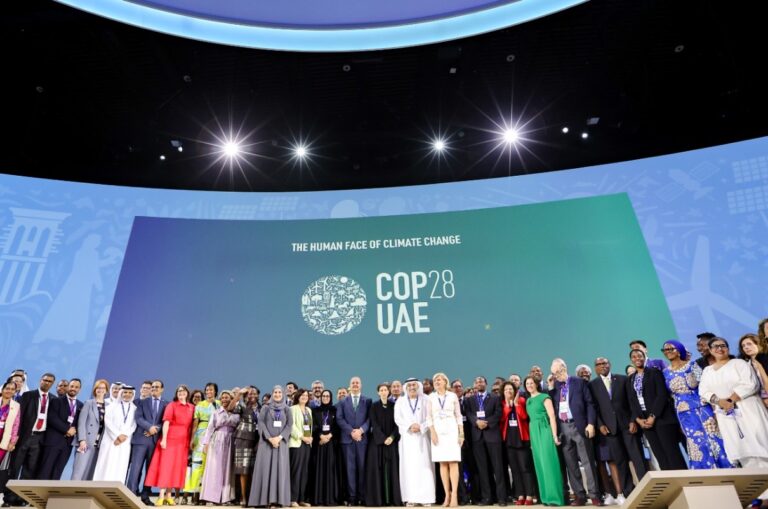After the traditional day of recess, this year coinciding with Friday given the Conference of the Parties is being held in an Islamic country, the final week of negotiations at the COP28 underway in Dubai comes into full swing.
The record number of participants should not be misleading. Never before has the COP been the subject of discontent and contradictions than this year.
Statements by COP President Sultan Al Jaber that an exit from fossil fuels is not confirmed by science sparked controversy. And even the decision on the next venue seems more a geopolitical issue than an environmental one.
Table of Contents
The final document draft: exit from fossil fuels?
A new draft of the COP28 main decision on Global Stocktake was out on December 8. There are still many options and brackets in the 27 pages. But the option to exit fossil fuels is included.
The text also addresses issues such as timelines for reviewing national commitments, climate finance, and other topics. In the second week’s reopening plenary, friction emerged between the COP Chair and the UNFCCC Executive Secretary.
The phrase with the greatest media impact precisely is the one about phasing out fossil fuels, referred to in English as phase out. Although symbolic it would still be a historic step to mention them in the final document, but the options open are still wide.
The possibile verdicts at COP28 in Dubai
Let’s list the options under discussion to make it clear how the decision on even comma issues plays out:
- Option 1: Phasing out fossil fuels in line with the best available science;
- Option 2: Phasing out fossil fuels in line with the best available scientific knowledge, the IPCC’s 1.5°C pathways, and the principles and provisions of the Paris Agreement;
- Option 3: Abandonment of inappropriate fossil fuels, recognizing the need to peak their consumption this decade and stressing the importance of the energy sector being predominantly fossil fuel-free well before 2050;
- Option 4: Abandonment of inadequate fossil fuels and rapid reduction in their use to achieve net zero CO2 emissions in energy systems by or around mid-century;
- Option 5: No text.
In short, it ranges from proposing phasing out to stating dates, and then moving on to equivocal phrases with the term “adequate” that leave room for dubious solutions such as CCS or even dropping this part from the text.
The major controversies
In recent hours, the controversy has become heated. In a letter, the oil-producing countries expressed a clear rejection of the first four options. Spanish Minister Ribera described this statement as “disgusting.” France said it was “angry and stunned” at this decision.
Climate Action Network, the coalition of environmental organizations, denounced that civil society is being subjected to unprecedented restrictions. Thus urgently urging the UN to preserve freedom of expression and demonstration.
Dedicated spaces for protests are suddenly closed. Absent the traditional Saturday demonstration that was so colorful and well attended at, for example, COP25 in Madrid and COP26 in Glasgow.
Clamorous the number of fossil industry lobbyists, estimated at more than 2,500 participants, in the observers but also included from national delegations. Last year there were 700.
COP29 in Azerbaijan?
Clamorous stalemate also in deciding the next COP venue. While the 2025 one in Brazil is already decided, in 2024 it would be Eastern Europe’s turn. Cross vetoes between Russia and the European Union caused the first candidate, Bulgaria, and then Belarus, to fail.
There were rumors of falling back on the UNFCCC headquarters in Bonn. But that would have meant leaving the United Arab Emirates with the chairmanship, much contested today.
Now the candidacy of Azerbaijan’s capital Baku is popping up. First opposed by Armenia, now opening a peace table between the two countries it seems this is the likely COP29 venue. So once again it is likely to be an OPEC country, a major oil and gas producer, that will host a climate conference.
Read also: COP28 in Dubai: agreements and latest updates from the UN Climate Conference












